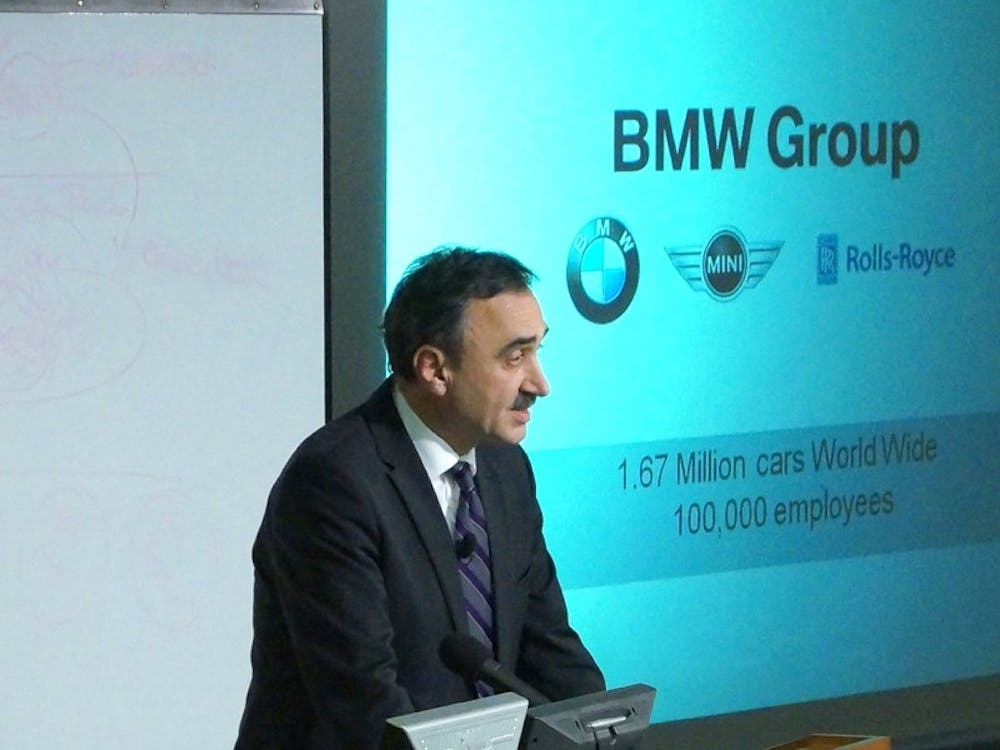Company president speaks in Wells Fargo lecture series
Josef Kerscher’s work is tied quite a bit to the rest of the world.
The president of the BMW U.S. Manufacturing Company is based in Greer, S.C., but the company’s South Carolina factory, BMW’s second largest, exports most of the cars it builds, Kerscher said. It has the highest export rate of any American auto factory at 70 percent, he told a crowd of more than 100 in the Darla Moore School of Business Thursday as a part of the Wells Fargo Executive Lecture Series.
“We are engineering and manufacturing for the world market,” Kerscher said.
It’s built a lot of cars since it began production in 1994. In January, the factory announced its 2 millionth vehicle.
And it’s growing, too, Kerscher said — the factory has hired 300 employees this year, in a state with an 8.6-percent unemployment rate, according to the Bureau of Labor Statistics. In all, he said, the factory employs about 7,000 people.
“We have always been a growing company,” Kerscher said.
BMW came to the state for a number of reasons, Kerscher said: a business-friendly environment, a workforce with manufacturing experience and an infrastructure, particularly in the port of Charleston, that makes getting cars to a global market easier.
“We are in a worldwide market,” Kerscher said. “You have to be prepared for worldwide competition.”
He told USC students to do the same.
“If you are prepared for this (global) competition, you will be successful,” Kerscher said.
The company has also focused on developing sustainabilty efforts.
BMW has led the Dow Jones Sustainability Index for seven consecutive years, Kerscher said, and it fits with a focus on efficient manufacturing.
“Efficiency also includes sustainability,” he said. “We are really focused on environmentally friendly manufacturing.”
Since 2006, Kerscher said, water consumption at the factory has been reduced by more than 50 percent. He also explained that a new painting process has reduced total energy consumption by 20 percent.
“We are close to being 100 percent waste-free,” Kerscher said.

